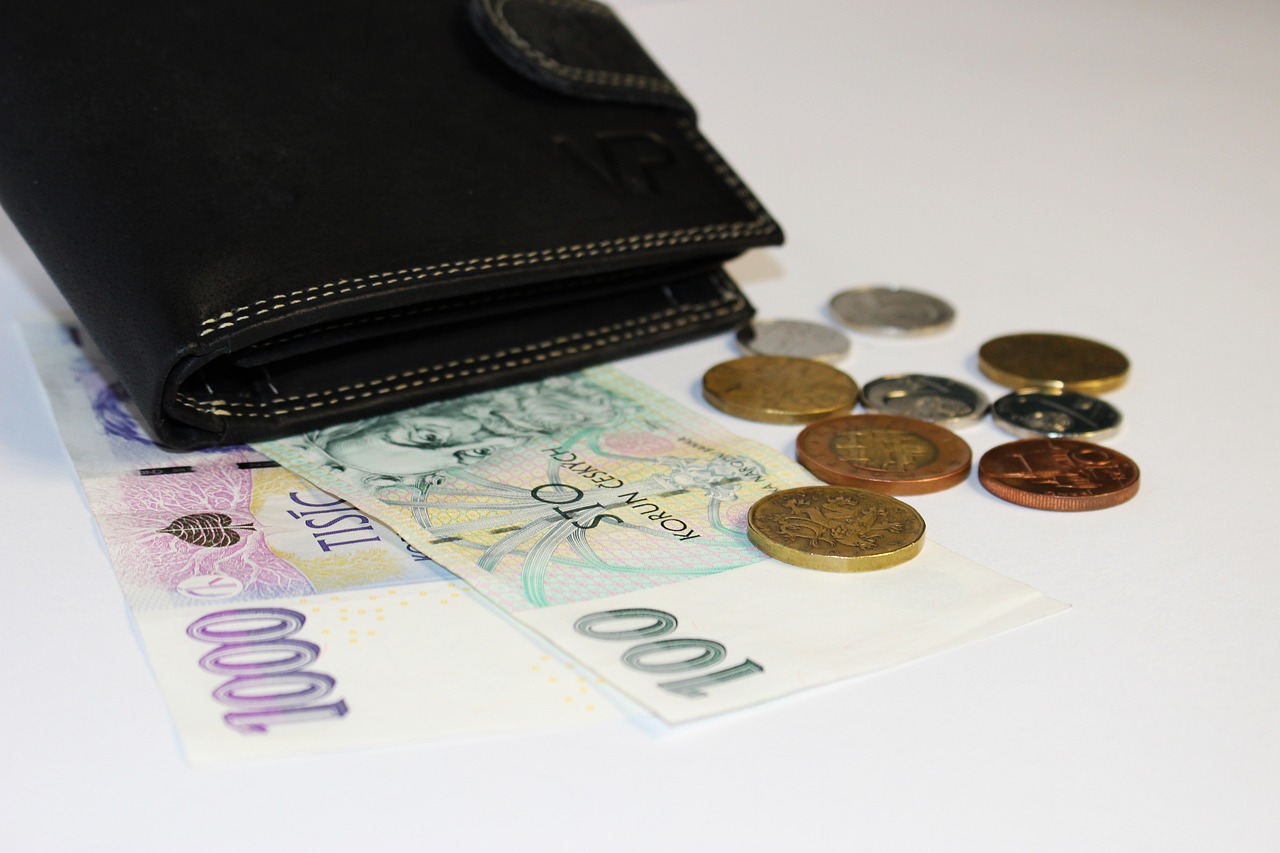Navigating International Transfers: Answers to Your Top 5 Questions About Sending Money to Thailand
GPT_Global - 2024-08-29 22:30:13.0 224
Will I receive a confirmation once my bank transfer to Thailand is complete?
If you're sending money to Thailand through a bank transfer, you may be wondering if you will receive a confirmation once the transaction is complete. The answer is yes! Once your bank transfer is processed and the funds reach their destination, you should receive a confirmation from your bank as well as the recipient's bank in Thailand.
The confirmation will typically include details such as the amount transferred, the exchange rate used, and the fees deducted. It's important to carefully review this confirmation to ensure everything is correct. If you notice any discrepancies, contact your bank immediately to resolve the issue.
If you're using a remittance service to send money to Thailand, you may also receive a confirmation from them once the transaction is completed. This can serve as an additional reassurance that your money has reached its intended recipient.
Receiving a confirmation is not only helpful for your peace of mind, but it can also serve as proof of your transaction. You may need this confirmation for record-keeping purposes or if any issues arise with your transfer. It's always advisable to keep a copy of your confirmation for future reference.
In some cases, the confirmation may be sent via email or available for download from your online banking portal. If you do not receive a confirmation or are unable to access it, contact your bank for assistance.
Overall, receiving a confirmation for your bank transfer to Thailand is a standard practice and should not be a cause for concern. As long as you have provided accurate information and followed the correct procedures, you can expect to receive a confirmation once your transfer is complete.

Are there any restrictions on the types of accounts I can transfer money to in Thailand?
When it comes to transferring money to Thailand, there are certain restrictions on the types of accounts that you can send money to. The main types of accounts that you can transfer money to in Thailand include personal accounts, business accounts, and investment accounts. However, there are some limitations in terms of the sources of funds for these accounts.
For personal accounts, you can transfer money from your own personal bank account to a Thai personal account. This is a straightforward process, as long as both accounts are in your name. However, if you wish to transfer money from someone else's account, such as a family member or spouse, you may need to provide additional documentation to prove the legitimacy of the transfer.
For business accounts, you can transfer money from your company's account to a Thai business account. Again, both accounts must be in the same name and additional documentation may be required if the company is not your own. It's important to note that you cannot transfer funds from a personal account to a business account or vice versa.
If you have investments in Thailand, such as stocks or property, you can transfer money to and from an investment account. However, these transfers may be subject to certain regulations and taxes. It's always best to consult with a financial advisor or tax specialist before making any international transfers involving investments.
In summary, while there are some restrictions on the types of accounts that you can transfer money to in Thailand, it is still possible to transfer funds to personal, business, and investment accounts. Just make sure to follow the proper procedures and provide any necessary documentation for a smooth and secure transaction.
How do exchange rates and conversion fees affect bank transfers to Thailand?
Introduction
The process of transferring money from one country to another can involve additional fees and complexities, especially when dealing with exchange rates. This is particularly important for individuals sending bank transfers to Thailand, as the country has its own unique currency, the Thai Baht, and its own specific conversion fees and regulations.
Exchange Rates and Bank Transfers to Thailand
Exchange rates play a crucial role in bank transfers to Thailand. When sending money from a different country, the sender's currency must be converted into Thai Baht before it can be received by the recipient. This means that the amount received in Thai Baht may differ from the original amount sent, as exchange rates are constantly fluctuating.
It is important for individuals to research and compare exchange rates offered by different banks or remittance services to ensure they get the best deal for their transfer. Some banks may offer competitive exchange rates, while others may charge higher fees for currency conversion.
Conversion Fees
In addition to exchange rates, conversion fees can also affect bank transfers to Thailand. These fees may vary depending on the bank or remittance service being used, and can add up to a significant amount, especially for larger transfers.
Aside from conversion fees, some banks and remittance services may also charge service fees for international transfers. These fees can range from a flat rate to a percentage of the total amount being transferred, and should be taken into consideration when selecting a method for sending money to Thailand.
Conclusion
In conclusion, exchange rates and conversion fees are important factors to consider when making bank transfers to Thailand. It is recommended to do thorough research and compare different options in order to find the most cost-effective and efficient method for sending money to Thailand. Additionally, staying updated on current exchange rates can also help individuals make informed decisions when sending money to loved ones or conducting business transactions in Thailand.
Can I set up automatic bank transfers to Thailand?
For those who regularly send money to Thailand, setting up automatic bank transfers can be a convenient and efficient way to ensure that funds are received on time, every time. This option is often offered by remittance businesses, making it easy for customers to schedule recurring transfers without having to manually initiate them each time. Automatic bank transfers allow for peace of mind, as the sender can set up the transfer and rest assured that the recipient will receive the funds without any delays or hassle. This is particularly beneficial for those who have regular financial obligations in Thailand, such as paying bills or sending money to family members. To set up automatic bank transfers, most remittance businesses require the sender to provide their bank account information and the recipient's bank account details. Once this is done, the sender can choose the frequency of the transfers, whether it be weekly, bi-weekly, or monthly. This option also eliminates the need for multiple transactions, saving both time and money on transaction fees. With automatic bank transfers, the sender can also avoid currency exchange rate fluctuations, ensuring that the recipient receives the exact amount intended. Furthermore, automatic bank transfers offer convenience as they can be set up online or through a mobile app, making it accessible for busy individuals who are always on-the-go. It also provides a level of flexibility as the sender can easily modify or cancel the transfers if needed. In conclusion, setting up automatic bank transfers to Thailand through a remittance business is a smart and efficient way to send money. It offers peace of mind, convenience, and cost-effectiveness, making it an ideal option for those who have regular financial obligations in Thailand. With just a few simple steps, sending money to Thailand has never been easier.Can I cancel a bank transfer to Thailand once it has been initiated?
Remittance is the process of sending money from one country to another. With the increase in globalization, remittance businesses are becoming more popular. If you are planning to send a bank transfer to Thailand, you may wonder if it is possible to cancel it once it has been initiated.
The short answer is, it depends on the specific circumstances and the policies of your remittance service provider. Generally, once a bank transfer has been initiated, it cannot be cancelled or reversed. This is because the transfer has already been processed and the funds have been released to the recipient's account.
However, there may be certain situations where a bank transfer can be cancelled. For example, if you have made a mistake with the recipient's details or the amount of money to be transferred, you may be able to cancel the transaction before it is processed. In this case, you should contact your remittance service provider immediately and provide them with the correct information.
Another scenario where a bank transfer can be cancelled is if the recipient has not yet withdrawn the funds. In this case, you can request for the transfer to be cancelled and the funds to be returned to your account. However, this process may take some time and there may be fees involved.
If the bank transfer has already been successfully processed and the funds have been received by the recipient, it cannot be cancelled. In this case, your only option would be to contact the recipient and request for them to return the funds to you through another method.
In order to avoid any potential issues or complications, it is important to double check all the details before initiating a bank transfer. This includes ensuring that the recipient's details are accurate and the amount to be transferred is correct. It is also recommended to use a trusted and reliable remittance service provider to ensure a smooth and secure transfer.
In conclusion, cancelling a bank transfer to Thailand once it has been initiated is not always possible. It is important to carefully review all details before initiating the transfer to avoid any problems or delays. If you do need to cancel a bank transfer, it is best to contact your remittance service provider for assistance.
About Panda Remit
Panda Remit is committed to providing global users with more convenient, safe, reliable, and affordable online cross-border remittance services。
International remittance services from more than 30 countries/regions around the world are now available: including Japan, Hong Kong, Europe, the United States, Australia, and other markets, and are recognized and trusted by millions of users around the world.
Visit Panda Remit Official Website or Download PandaRemit App, to learn more about remittance info.


